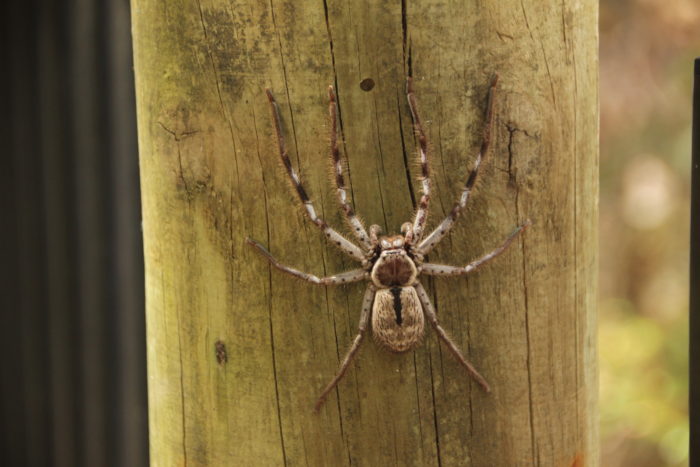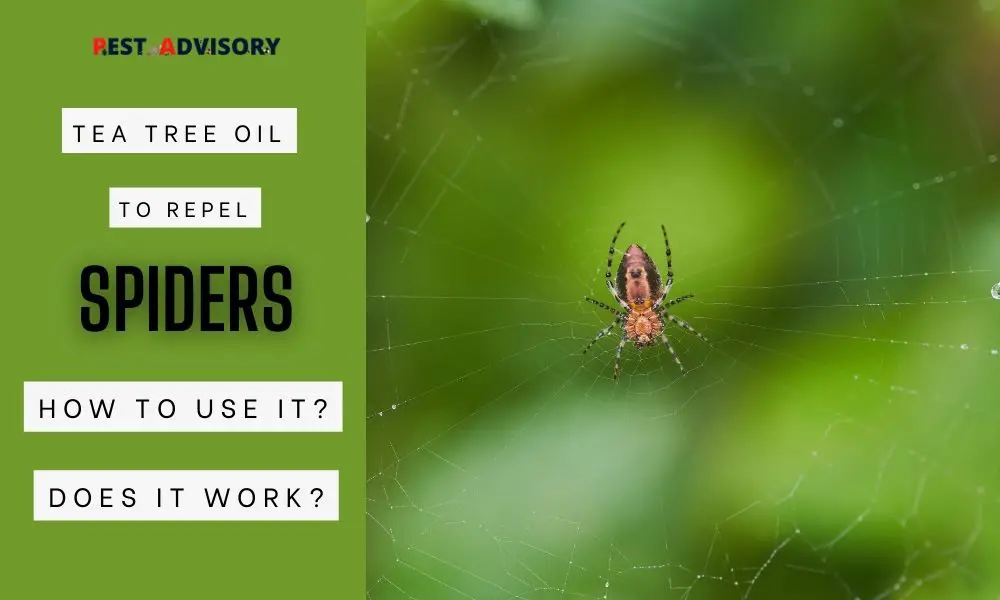Are you tired of sharing your space with unwelcome eight-legged guests? Enter tea tree oil—the aromatic essential oil that promises to repel spiders naturally.
But does this folk remedy really work, or is it just another old wives’ tale?
This article delves into the intriguing world of tea tree oil and its alleged spider-repellent properties.
Important Note: If you're tired of pests and want a reliable solution, then you should definitely consider seeking help from a professional pest control company. DIY solutions can be effective, but if you're dealing with a significant pest infestation, you don't want to rely solely on DIY methods. Pest control companies typically don't charge huge fees. You can fill out this form to receive free quotes from the top local pest control companies, and compare the quotes and see for yourself. Then, finally, your pest problems will be eliminated for good.
Prepare to uncover the truth and discover alternative solutions for keeping those creepy crawlies at bay.
Does Tea Tree Oil Repel Spiders?
Yes, tea tree oil can repel spiders due to its strong scent. Spiders rely on their sense of smell to navigate, and the potent aroma of tea tree oil can overwhelm and discourage them from entering a space.

How to Use Tea Tree Oil to Repel Wasps
Tea tree oil is known for its strong scent, which can be effective in repelling spiders.
Here’s a guide on how to use tea tree oil to repel spiders, including the required ingredients, instructions, and usage tips:
Ingredients
- Tea tree essential oil
- Water
- Spray bottle
Instructions
Dilute the Tea Tree Oil
Tea tree oil is highly concentrated and can cause skin irritation if used undiluted. Mix 10-15 drops of tea tree oil with 1 cup of water in a small bowl or container. This creates a diluted solution that is safe to use.
Fill a Spray Bottle
Once the tea tree oil is diluted, pour the mixture into a clean spray bottle. Make sure the spray bottle is labeled for easy identification.
Identify Spider-Prone Areas
Take note of areas in your home or surroundings where spiders are commonly found. This can include corners, cracks, windowsills, doorways, and other potential entry points.
Spray the Tea Tree Oil Mixture
Shake the spray bottle to ensure the oil and water are well mixed.
Spray the diluted tea tree oil solution directly on the spider or spider-prone areas where a most likely spider can build their webs or hide, and pay attention to the spots where spiders are most likely to enter your home.
Apply a light mist, but avoid saturating the area.
Repeat As Needed
Reapply the tea tree oil solution regularly, especially after cleaning or if you notice a decrease in its scent. Spiders are sensitive to smell, so maintaining a strong tea tree oil scent can help repel them.
Usage Tips
- Avoid using tea tree oil on surfaces that are sensitive to essential oils, such as polished wood or delicate fabrics. Test a small inconspicuous area before applying it to ensure it doesn’t cause any damage.
- Keep pets and children away from the sprayed areas until the solution has dried.
- If you have a severe spider infestation, tea tree oil alone may not be sufficient. Consider seeking professional pest control assistance.
Remember, while tea tree oil can help repel spiders, it may not guarantee complete elimination.
It’s always a good idea to combine this natural remedy with other spider prevention measures, such as regular cleaning, sealing cracks and crevices, and keeping your home clutter-free.

Frequently Asked Questions
How effective is tea tree oil in repelling spiders?
Tea tree essential oil has a strong scent and chemical composition that repels many insects, including spiders.
Various studies claim to be a good repellant. Its efficiency improves when mixed with other essential oils. Well, it may not work as effectively as chemical insecticides.
Are there any potential side effects of using tea tree oil as a spider repellent?
There are potential side effects of using tea tree oil as a spider repellent. Tea tree oil is a potent essential oil, and direct contact with the undiluted oil can cause skin irritation, allergic reactions, redness, itching, and burning sensations.
It should always be diluted with carrier oil before use. Additionally, some people may be sensitive to the strong scent of tea tree oil, which can cause nausea, headaches, or respiratory distress.
It’s essential to use tea tree oil in moderation and follow the instructions carefully to avoid any adverse effects.
How often do I need to apply tea tree oil to keep spiders away?
The frequency of tea tree oil application to keep spiders away can vary depending on several factors, such as the severity of the spider infestation, the size of the treated area, and the concentration of the solution.
In general, it is recommended to apply tea tree oil spray once every two weeks in areas where spiders are frequently seen.
However, if the spider problem is severe, the application may need to be more frequent.
It’s also essential to reapply the solution after rain or heavy cleaning to maintain its effectiveness.
How does tea tree oil compare to other natural spider repellents?
Compared to other natural spider repellents, tea tree oil has a unique chemical composition that makes it an effective insect repellent.
When compared to other natural repellents, Tea Tree oil is a much more effective one. Their composition is terpenes and terpenoids that have insecticidal properties.
Tea tree oil is also less harsh than some other natural spider-repellent remedies, making it safe for humans and pets when used correctly.
However, its effectiveness against spiders may vary depending on the specific species, and it may not be as potent as chemical insecticides or professional pest control services.
Conclusion
Incorporating tea tree oil into your spider-repelling arsenal can be a game-changer for maintaining a spider-free environment.
Its natural properties, combined with its invigorating scent, offer a safe and effective alternative to chemical-based repellents.
If you’re thinking only tea tree oil can be used as a natural essential oil remedy then you’re wrong. You can try lavender oil to repel spiders and eucalyptus oil to control spider populations.
By harnessing the power of tea tree oil and following the simple steps outlined above, you can bid farewell to unwanted eight-legged guests and enjoy a home that’s both spider-free and naturally refreshed.

